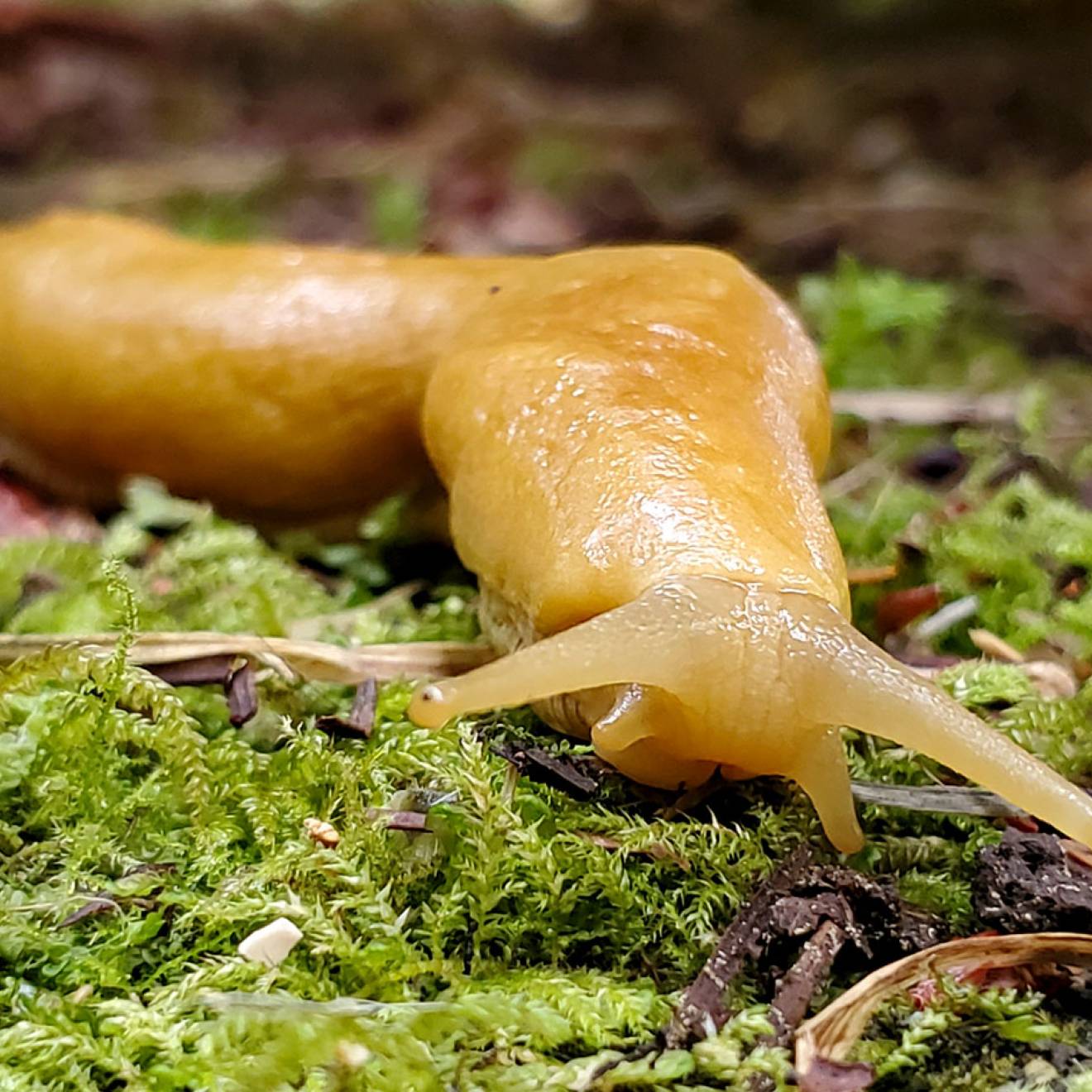Julia Busiek, UC Newsroom
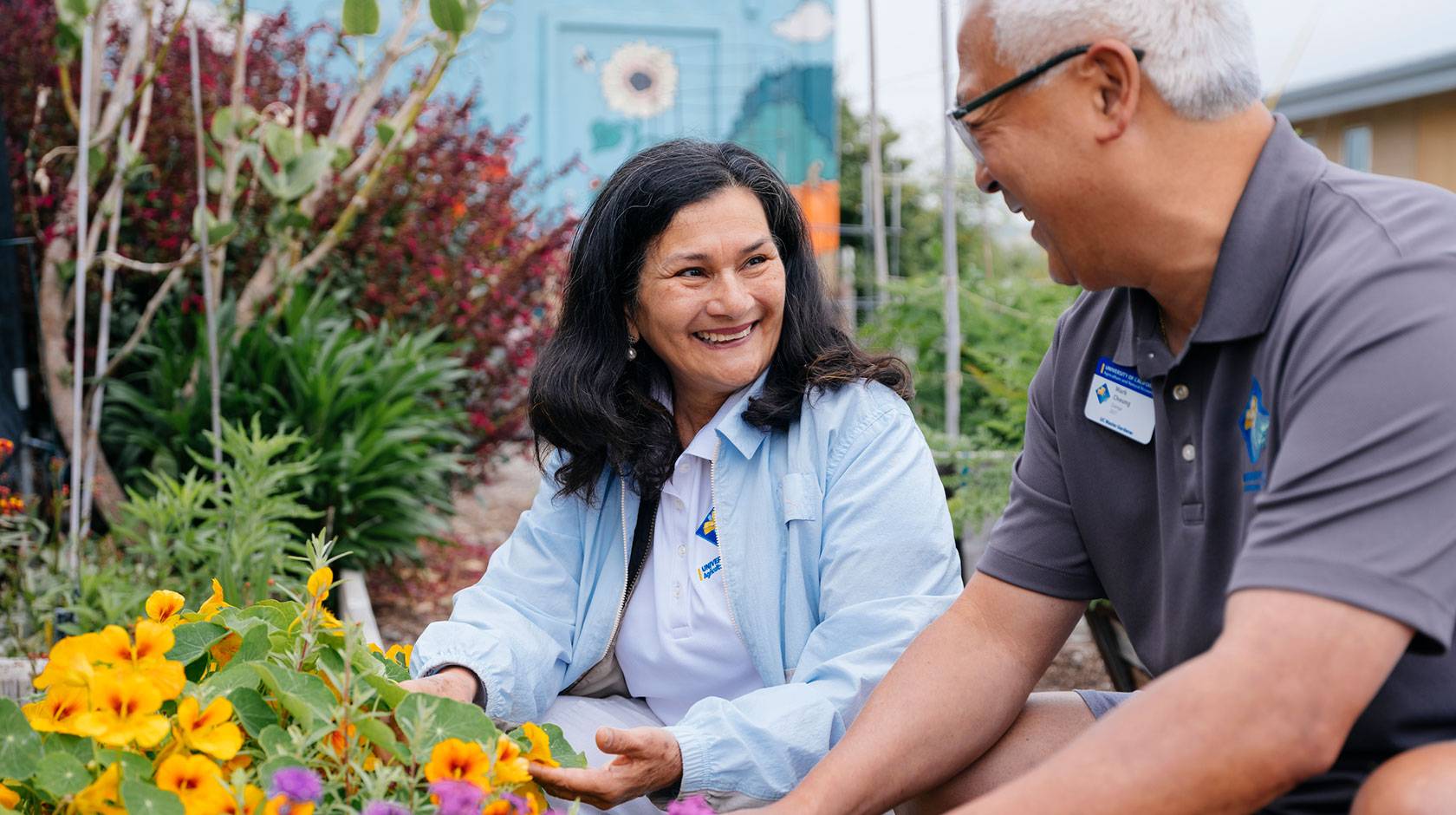
It all started with a Facebook post. In a rare quiet moment between raising her two young kids while she and her husband both worked full-time, Michelle Fullner scrolled past an ad from her local nature center: “Registration for the Spring 2020 Nature Center California Naturalist Program opens this Wednesday, January 15th at 9 a.m.!”
Fullner thought about the long hours she’d spent outside as a kid, and the everyday chaos of work and parenting that now made that kind of time harder to find. She reckoned the 40-hour class, taught by local experts in geology, botany, water and wildlife, would be a chance to reawaken something dormant within herself. “I got so excited when I saw that post. I was like, ‘How can I make this happen?’” Fullner says.
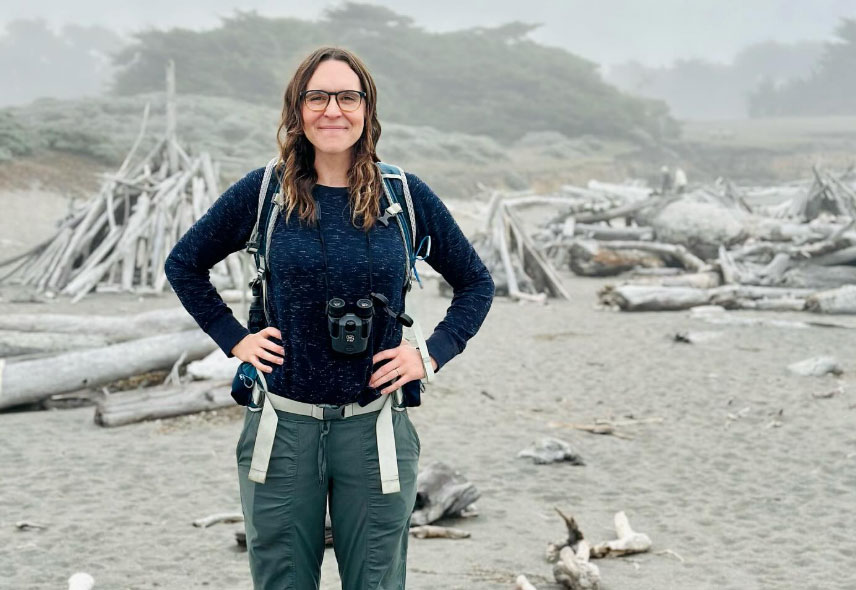
The California Naturalist class Fullner took at the Effie Yeaw Nature Center is part of UC Environmental Stewards, a program of UC Agriculture and Natural Resources that offers environmental education programs to adult learners through partners throughout the state. Through the eight-week class, she learned the names and habits of many of the plants and animals she’d grown up with, and how all the disparate elements that make up California’s natural history fit together and depend on each other.
As the class came to an end, “I started to get really sad,” Fullner says. So she went looking for a podcast all about California natural history to keep her momentum going. But it didn’t exist. “This idea started percolating,” she says. Why not create the podcast she wanted to hear? “I'm not an ecologist, I’m not a scientist, I’d never made a podcast before,” she says. “But thanks to California Naturalist, I had a framework of knowledge, and I had a pool of experts I thought could make for good interviews.”
Fullner released the first episode of her podcast, Golden State Naturalist, in early 2022. Three years and over 50 episodes later, it’s among the top one percent of podcasts worldwide, and Fullner has pivoted into a career as a full-time podcaster.
“I brought a deep reservoir of love for the natural world, and California Naturalist gave me the connecting tissue to make something of that,” she says.
Looking for a fresh start in the new year? California Naturalist classes are just the beginning of what the University of California offers lifelong learners across the state.
Throughout California, UC Agriculture and Natural Resources offers practical, hands-on education in a range of useful skills, from fending off garden pests to freezing surplus food. UC ANR offers classes in almost every California county, so you can learn from experts and meet fellow enthusiasts in your own community.
Most classes are taught by volunteer experts and are designed to equip more people with knowledge and skills so they can go out and be of service in their communities.
Boost California’s resilience through UC Climate Stewards
The California Naturalist program trains people to see California as it is. As the climate changes, a new course is training people to prepare for what’s coming. Launched in 2020, California Climate Stewards offers a 40-hour class designed to equip citizens with local, up-to-date climate science, improve climate literacy and seed climate action.
“We heard from a lot of our California Naturalist trainees that they were struggling with overwhelming climate anxiety, and wanted a course that helps them move towards action,” says UC Environmental Stewards Community of Practice Educator Alexandra Stefanich.
The California Climate Stewards curriculum combines classroom, online and field studies in earth systems, water, energy, and agriculture. The course also covers state and local climate policy, communication, citizen science, and community service, so trainees come out with a better sense of where to focus their energy to advocate for change.
“Pursuing service projects as part of a community helps people gain agency and see and feel the difference they’re making,” Stefanich says. “People who’ve gone through the training say that’s been a better way to relieve their anxiety as opposed to just making small personal changes which feel out of alignment with the scale of the issue.”
Grow more food with UC Master Gardeners
California’s relatively balmy climate makes it a pretty forgiving place for growers — it’s part of the reason we’re the most productive agricultural region in America. But that doesn’t mean growing here is easy. That’s why UC Master Gardeners have been doling out research-based advice to home horticulturalists in the Golden State for almost five decades.
The heart of the program is an intensive, 16-week certification course. Through in-person instruction and online study, students learn from academic and volunteer experts about all things garden: soil management, water, propagation, pests, disease, lawn care, growing fruits and vegetables, and how to design a healthy backyard landscape.
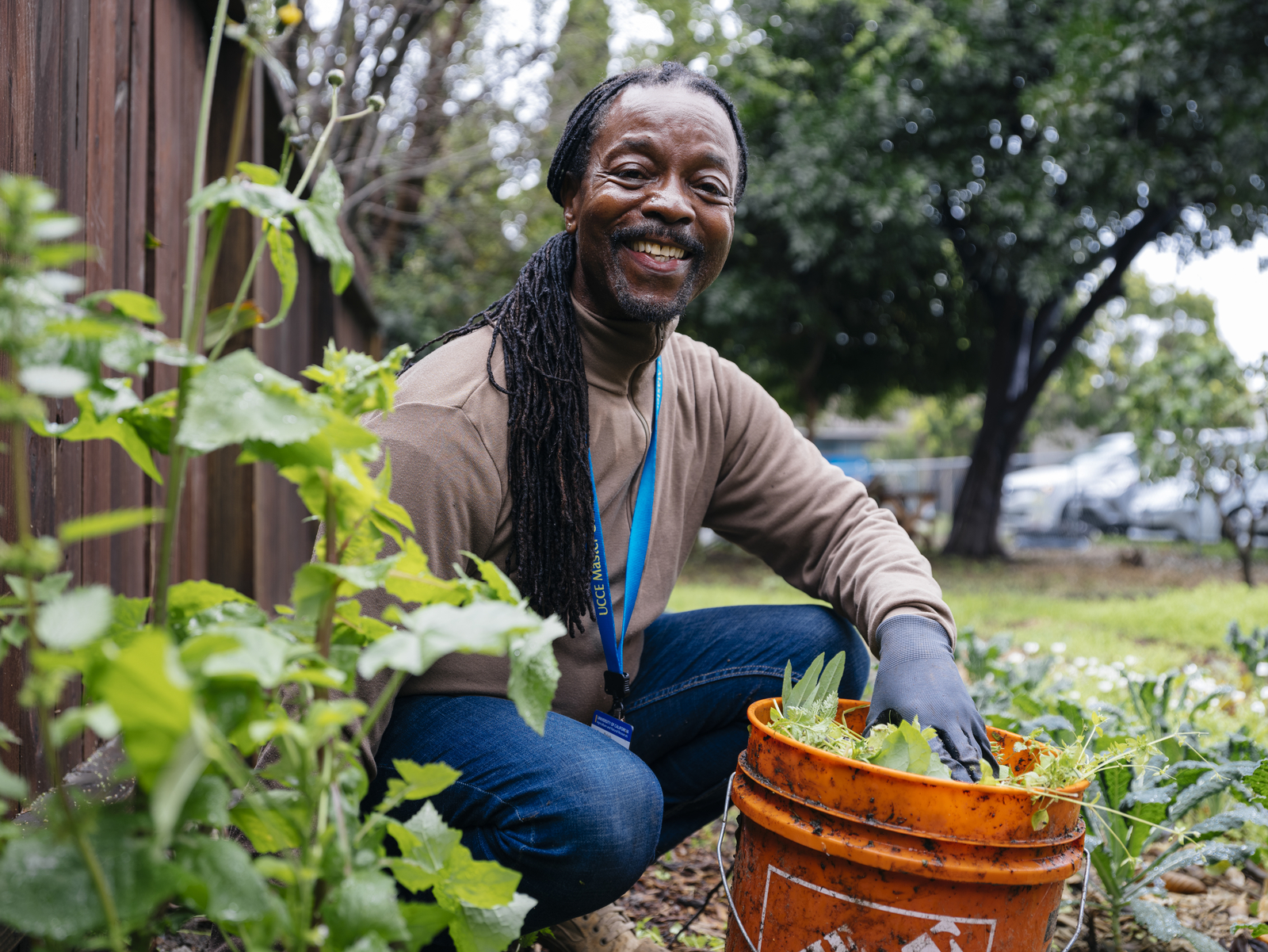
Once students make it through the curriculum and pass a test, students earn the right to call themselves Master Gardeners. For most of the 34,000 people who’ve completed the training, that’s just the beginning. “Once you’re certified, you then become part of a network of volunteers that’s extending garden information and access throughout their communities,” says Melissa Womack, UC Master Gardeners assistant director of impact and communications. First-year Master Gardeners commit to 50 hours of volunteer service along with 25 hours of service and 12 units of continuing education every year to keep their certification current.
That can come by answering gardening questions through a hotline or hosting classes and events. Master Gardeners also help create access to gardening for more Californians by getting involved in community gardens or school gardens. “We hear from our graduates that the volunteer component is the most fulfilling part of their experience,” Womack says.
Waste less with Master Food Preservers
At least 30 percent of the food grown in America eventually goes to waste, taking a toll on our climate and environment, not to mention our pocketbooks. The UC Master Food Preservers program launched in the early 1980s, to train Californians in safe, science-based techniques for making the most of the food they buy and grow.
For most of human history, in-home food preservation expertise was a matter of survival. Today preserving food is more of an avocation, says Wendi Weston, UC Master Food Preserver Coordinator for Sacramento County, as well as a way for people to take more control of their diets and the ingredients in the food they eat.
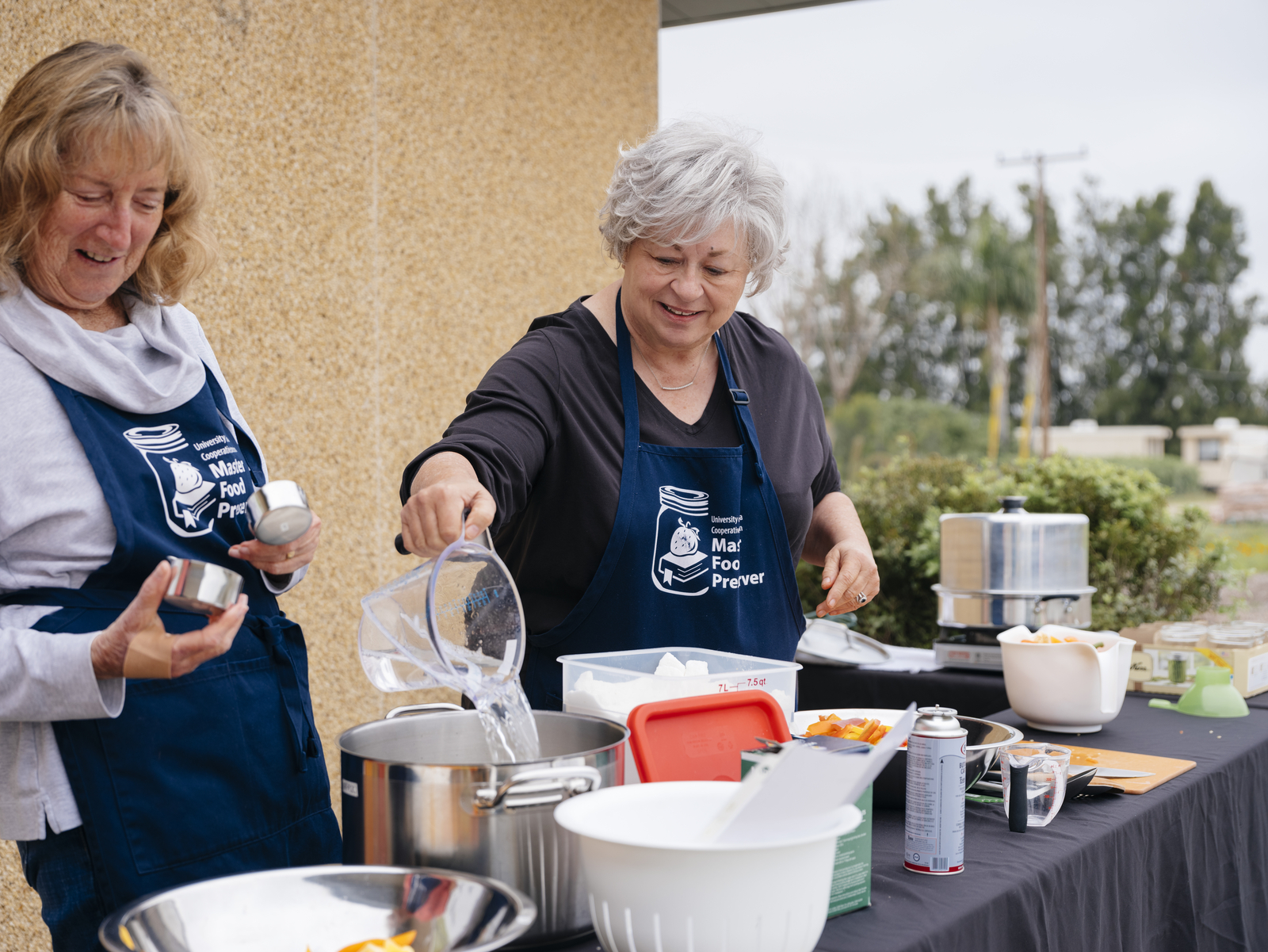
Through a blend of in-person and online coursework and demonstrations, the Master Food Preserver certification course covers a huge range of food preservation techniques, like pickling, canning, fermenting, drying, and even freezing. “It turns out freezing food while maintaining its quality is sort of an art,” says Weston. “Most people just stick it in a bag in the freezer and when they go to pull it out, it’s all crystally and not that tasty. There’s a better way to do it.”

